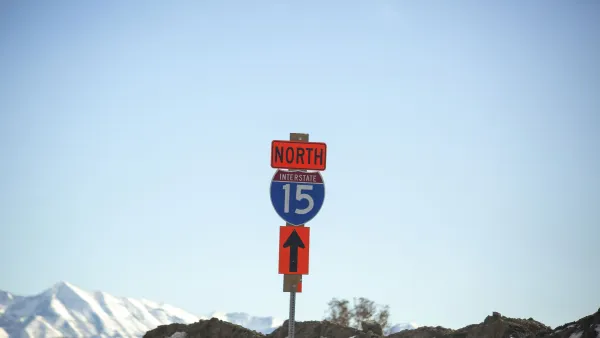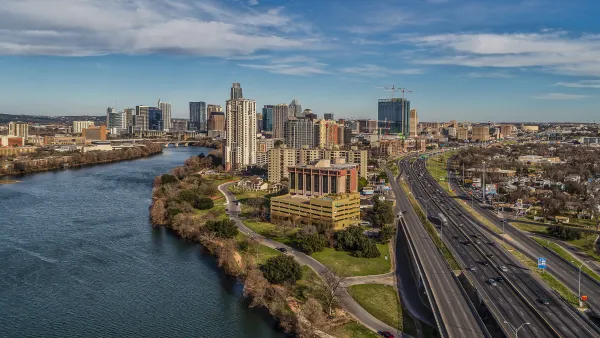The American Association of State Highway and Transportation Officials recently announced that the Utah Department of Transportation had won the "Quality of Life/Community Development" award. A social media pile on commenced.

The Utah Department of Transportation completed a project in October 2020 that spent $415 million to widen Interstate 15 in the growing city of Lehi. The project, completed at a notorious bottleneck, added 17 bridges and new frontage roads for local traffic, along with transit access and improvements to a regional trail system. The trails that now connect through the area are part of a network that stretches from Salt Lake City to just outside of Provo.
The American Association of State Highway and Transportation Officials (AASHTO) announced on Twitter that the project had won the "Quality of Life/Community Development," award for a large project group on September 16, and the blowback was swift and vociferous.
According to an article by Ian Duncan about the project, the award, and the ensuing online controversy, the social media pile on "highlighted a core dispute about what role cars and highways should play in the future of transportation." That debate is all the more relevant given the ongoing debate at Congress for the Infrastructure Investment and Job Act as part of a larger $3.5 trillion budget package that at least starts a conversation about a new direction for U.S. transportation policy—even if it falls short of the hopes of many climate and transit advocates.
The article includes soundbites from planning luminaries Janette Sadik-Khan, Beth Osborne, and Charles Marohn. The former chimed in via Twitter:
"When a prize roadway project in the ‘Quality of Life/Community Development’ category shows signs of neither — not even a single person on foot, bike or transit — it deserves our scorn, not our praise,” wrote Janette Sadik-Khan, a former New York City transportation commissioner. “By these Orwellian standards, there is no such thing as traffic failure."
Zabe Bent, design director at the National Association of City Transportation Officials (NACTO), is also paraphrased in the article calling on planners to look beyond marginal improvements and rethink transportation systems in the face of climate change, racial injustice and soaring road deaths.
Accomplishing such a mode shift will require an uphill climb. States continue to expand highways and even the Infrastructure Investment and Jobs Act, touted as an milestone accomplishment of bipartisan cooperation, would spend "$350 billion for highways, about $107 billion for transit and $66 billion for rail," as noted by Duncan.
Marohn's soundbite describes that bill as "basically a highway bill with a veneer of handouts for everyone else to make the medicine go down easier."
FULL STORY: How a quality-of-life award for a 12-lane Utah highway sums up the debate over the future of transportation

Analysis: Cybertruck Fatality Rate Far Exceeds That of Ford Pinto
The Tesla Cybertruck was recalled seven times last year.

National Parks Layoffs Will Cause Communities to Lose Billions
Thousands of essential park workers were laid off this week, just before the busy spring break season.

Retro-silient?: America’s First “Eco-burb,” The Woodlands Turns 50
A master-planned community north of Houston offers lessons on green infrastructure and resilient design, but falls short of its founder’s lofty affordability and walkability goals.

Test News Post 1
This is a summary

Analysis: Cybertruck Fatality Rate Far Exceeds That of Ford Pinto
The Tesla Cybertruck was recalled seven times last year.

Test News Headline 46
Test for the image on the front page.
Urban Design for Planners 1: Software Tools
This six-course series explores essential urban design concepts using open source software and equips planners with the tools they need to participate fully in the urban design process.
Planning for Universal Design
Learn the tools for implementing Universal Design in planning regulations.
EMC Planning Group, Inc.
Planetizen
Planetizen
Mpact (formerly Rail~Volution)
Great Falls Development Authority, Inc.
HUDs Office of Policy Development and Research
NYU Wagner Graduate School of Public Service




























